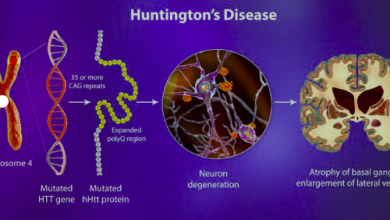Biology
-

Entropy Meaning, Definition Of Entropy, Formula, Thermodynamic- Softpik.com
Introduction of Entropy In thermodynamics, entropy is a state function introduced in 1865 by Rudolf Clausius as part of the second principle, based on the work of Sadi Carnot. Clausius showed that the ratio Q/T (where Q is the amount of heat exchanged by a system at temperature T)…
-
Everything you need to know about Cultural Anthropology – Softpik.com
Everything you need to Know about Cultural Anthropology Anthropological fields such as cultural anthropology make it possible to understand the origins of humanity. They show different societies and cultures, their differences, and their similarities. Cultural anthropology plays an important role in this. Although anthropology focuses only on culture, its specific…
-

Huntington’s Disease – Symptoms and causes – Softpik.com
Huntington You got it thanks to your father. Your cheerful character? That really comes from your mother. We all have traits that we inherit from our parents. This heredity brings good things, but sometimes not-so-good things. Huntington’s disease is one of those less-good things. What is Huntington’s Disease? Huntington’s disease…
-

Female Reproductive System: Structure & Function
The Female Reproductive System – the Creator of Life Programmed to bring forth new life, the female reproductive system is one of the most complicated and fascinating parts of the human body. And not only because she manages to give birth, but also because the changes she goes through…
-
Biology | Definition, History, Concepts, Branches, & Facts
What is Biology? Biology is the study of the life sciences. While this is a large body of science, many interconnected disciplines come together as a unified field. For example, all living things have cells that process genetic information stored in genes that can be passed on to future generations.…
-
What is Biology, Branches of Biology, History, Concepts & Facts
Branches of Biology There are different branches of Biology that are directly related to the Environment Like; Botany, Genetics, Zoology, Ecology, Microbiology, Reproductive Biology, Cell Biology, Molecular Biology, Physiology, Marine Biology Also Read: Biology | Definition, History, Concepts, Branches, & Facts Here we have discussed each branch of Biology:…